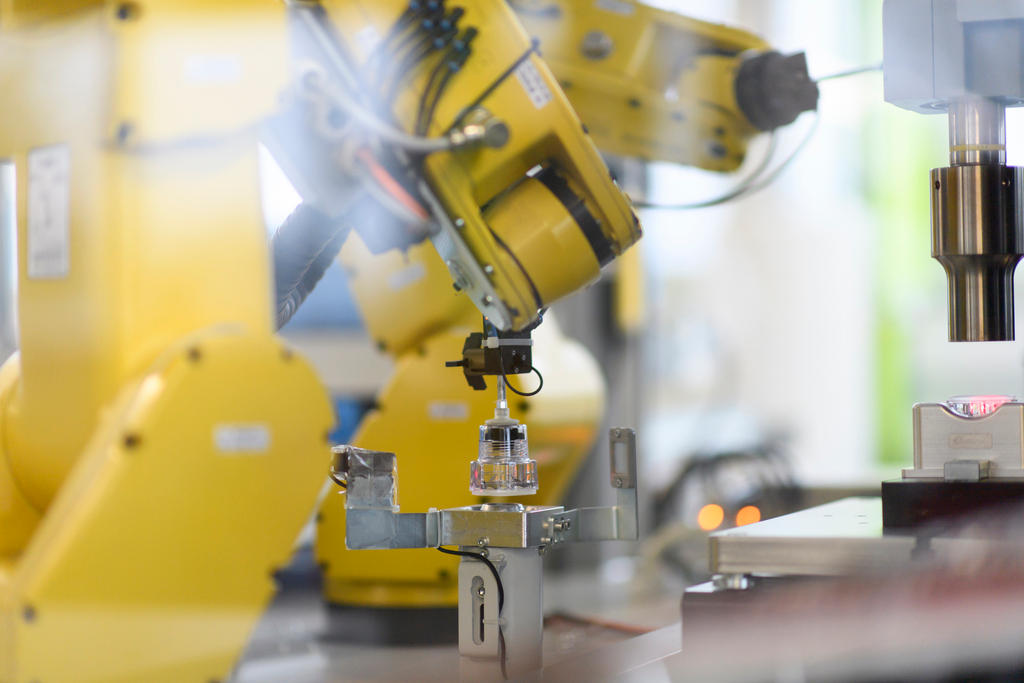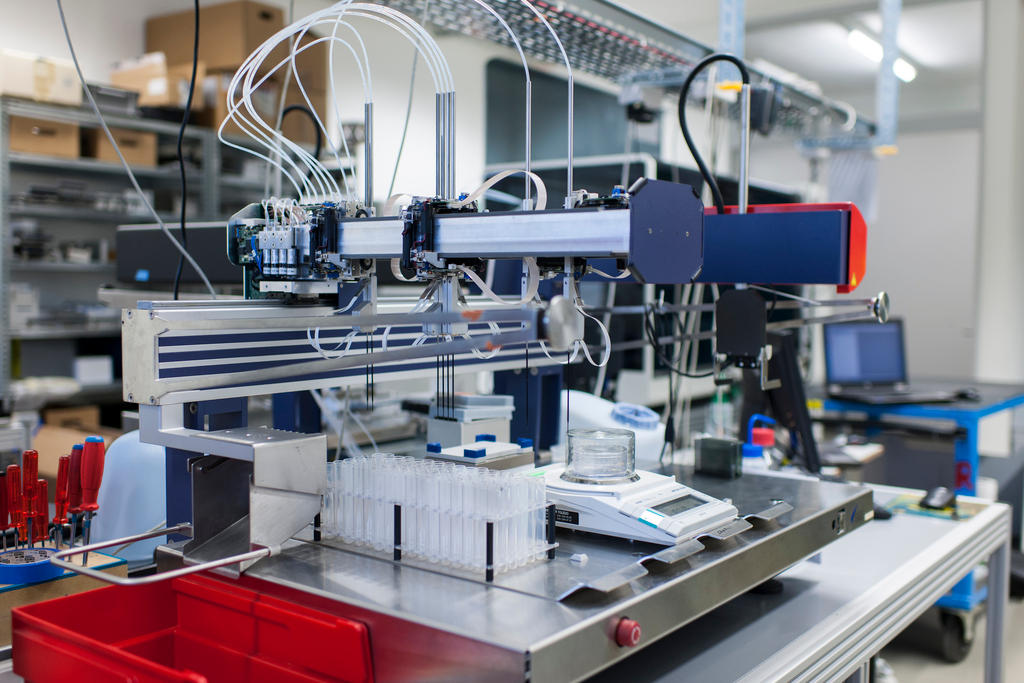Swiss business lobby rejects idea of ‘robot tax’

The Swiss Business Federation (economiesuisse) rejects imposing a so-called robot tax on companies to make up for lost income taxes as workers are gradually replaced by machines.
Rather than focusing on a robot tax, Switzerland should encourage the development of a faster internet network and cooperation between business and Swiss research institutes, declared a new economiesuisse reportExternal link on the digital economy, which was published on Tuesday.
The report’s authors said technology should not be directed by fiscal measures, which would dissuade investors.
To transform the digital economy, internet speeds must be increased across Switzerland, alongside high-performance information and communication infrastructure, they added.
The digital economy requires better cooperation and networking between universities, small- and medium-sized businesses, start-ups, research institutes and non-governmental organisations, the report stated. Public-private partnerships must be reinforced and universities must be encouraged to invest more in fields which contribute to the digital economy of the future, it went on.
Idea gaining hold
The idea that managing robotic workers requires changes to current social and labour policies is gaining traction in some industrial nations.
South Korea this month introduced the world’s first tax on robots amid fears that machines would replace human workers. The country will limit tax incentives for investments in automated machines as part of a newly proposed revision of its tax laws.
Elsewhere, former Microsoft owner Bill Gates has called for a tax on robots. European Union institutions have also been looking at the issue.
University of Geneva professor and tax lawyer Xavier Oberson defended the introduction of a robot tax in a recent swissinfo.ch article. He argues that as robots slowly take over more and more jobs – particularly in the industry and service sectors – there will be a rise in unemployment and a corresponding drop in tax and social security receipts by governments all over the world. He believes that imposing a tax on work done by robots could help offset these losses.
According to consulting firm Deloitte SwitzerlandExternal link, in principle, 50% of current Swiss jobs could indeed be lost to automation in the coming years. But actual employment figures show that over the last quarter century, more jobs have been created due to automation than have been lost.
In February, Bloomberg External linkreported that traditionally high salaries coupled with high costs associated with the strong franc are increasingly forcing Swiss companies like Firmenich and Ricola to hire automated workers rather than human ones.

In compliance with the JTI standards
More: SWI swissinfo.ch certified by the Journalism Trust Initiative










You can find an overview of ongoing debates with our journalists here . Please join us!
If you want to start a conversation about a topic raised in this article or want to report factual errors, email us at english@swissinfo.ch.